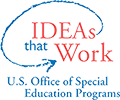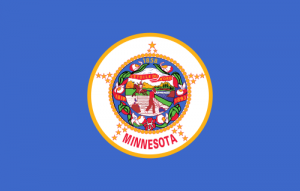Minnesota
Teaching Standards and Leadership Standards
Teaching Standards
Is working with and meeting the needs of students with disabilities addressed in state teaching standards?
The Minnesota Standards of Effective Practice for Teachers specifically address the learning needs of students with disabilities.
Standard 3, Diverse Learners –
A teacher must understand how students differ in their approaches to learning and create instructional opportunities that are adapted to students with diverse backgrounds and exceptionalities. The teacher must: know about areas of exceptionality in learning, including learning disabilities, perceptual difficulties, and special physical or mental challenges, gifts, and talents; accommodate a student’s learning differences or needs regarding time and circumstances for work, tasks assigned, communication, and response modes; identify when and how to access appropriate services or resources to meet exceptional learning needs; and identify and apply technology resources to enable and empower learners with diverse backgrounds, characteristics, and abilities.
Standard 10, Collaboration, Ethics, and Relationships –
A teacher must be able to communicate and interact with parents or guardians, families, school colleagues, and the community to support student learning and well being. The teacher must: understand appropriate education for students with disabilities.
Source: Minnesota Administrative Rules (M.A.R.) 8710.2000, Standards of Effective Practice for Teachers
School Leadership Standards
Is knowledge of working with students with disabilities included in leader standards?
Minnesota does not have school leadership standards, but state administrative rules have established core competencies for administrative licenses, including a specific focus on special education. These competencies include:
- “Diversity Leadership” by “demonstrating an understanding and recognition of the significance of diversity, and responding to the needs of diverse learners” and by “creating and monitoring a positive learning environment for all students”;
- “Curriculum planning and development for the success of all learners” by “demonstrating the ability to enhance teaching and learning through curriculum assessment and strategic planning for all learners,” including special education; and
- “Policy” by “demonstrating an understanding of state, federal, and case law governing general education, special education, and community education.”
The state rules also include a special set of competencies for individuals serving as directors of special education.
Source: M.A.R., 3512.0510
Teacher and Principal Preparation
Teacher Preparation – Program Approval/Accreditation
Required course work in teaching students with disabilities/diverse learners
For general education teachers, the state does not require coursework specific to the learning needs of students with disabilities. For special education teachers, the licensure standards for each special education categorical area include competencies regarding teaching special education students and diverse learners. [See Minnesota Administrative Rules, 8710.5000 through 8710.5850] All teacher preparation programs that train special education teachers must incorporate all of those competencies into their curriculum.
Sources:
M.A.R. 8700.7600, Institutional Program Approval for Teacher Preparation
M.A.R. 8710.5000-8710.5850
Clinical time in diverse settings/teaching special populations
State policies require preparation programs, in providing clinical and field experiences to teacher candidates, to ensure that they include diverse student populations, students with disabilities, and students of different ages.
Source: M.A.R. 8700.7600, Subp. 5(C2), Institutional Program Approval for Teacher Preparation
Teacher Preparation – Accountability
Quality of teacher preparation programs
An institution that wishes to prepare teachers must go through a rigorous approval process specific to their institution or organization (Unit Approval) and then to each licensure field (Program Approval), as managed by the Minnesota Board of Teaching. The state of Minnesota currently collects some objective program-specific data and requires the collection and annual reporting of some program-specific objective data that reflect program performance for its alternate routes into teaching. In addition, all preparation programs, including alternate route programs, require the edTPA for accountability purposes. Candidates must be measured in three areas: planning for instruction and assessment, engaging students and supporting learning and assessing student learning.
New evaluation and approval rules for teacher preparation programs become effective on January 1, 2016. Each program will have to submit program effectiveness reports for continuing approval that provide program data for all licensure, initial licensure, and endorsement programs. They will have to show evidence of continuous improvement, including through data such as beginning teacher survey data, response rates from locally determined surveys aligned to the standards of effective practice for program completers, licensure examinations and performance assessments.
Sources:
National Council on Teacher Quality, 2014 State Teacher Policy Yearbook: Improving Teacher Preparation in Minnesota
M.A.R. 8700.7600, Institutional Program Approval for Teacher Preparation
Minnesota Board of Teaching, Changes to M.A.R. 8700, 8705 and 8710
edTPA Minnesota
Principal Preparation – Program Approval/Accreditation
Required course work in leading a school/district that serves special education students/diverse learners
An applicant for licensure as a superintendent or principal must complete a specialist or doctoral program or a program consisting of 60 semester credits beyond the bachelor’s degree that includes a terminating graduate degree and topics that address core leadership competencies for Minnesota administrative licenses including “responding to the needs of diverse learners,” an understanding of special education laws, and “demonstrating the ability to enhance teaching and learning through curriculum assessment and strategic planning for all learners”, including special education. In addition, Minnesota requires field experience of at least 320 hours or 40 eight-hour days to be completed within 12 continuous months in elementary, middle or junior high, and high schools as an administrative aide to a licensed and practicing principal or superintendent.
Source: M.A.R. 3512.0200
Principal Preparation – Accountability
Are programs reviewed based on outcomes of graduates’ success? Can school principals be linked back to institutions of higher education and preparation programs?
In Minnesota, the Board of School Administrators (BOSA) approves pre-service programs, based on Minnesota Rule 3512.0510, the same set of standards and competencies detailed under the section School Leadership Standards. The review by BOSA serves to verify alignment of the preparation program to the standards. The review also includes collection of student performance data, state and national accreditations, self-studies, external review panels, and performance of program graduates.
Sources:
Minnesota Statutes 122A.14, Duties of Board of School Administrators
M.A.R. 3512.2500
M.A.R. 3512.0510
M.A.R. 3512.0300
Teacher and Principal Certification/Licensure
Teacher Certification/Licensure – Structure
Is a specific certificate, license or endorsement related to special education required?
Minnesota offers both a K-12 and an early education special education teacher certification. Licensure standards for each special education categorical area include competencies regarding teaching special education students and diverse learners. [See Minnesota Administrative Rules, 8710.5000 through 8710.5850] All Minnesota special education teachers must achieve the Standards of Effective Practice, Core Special Education and competencies in a chosen categorical area(s) for licensure.
The Professional Educator Licensing and Standards Board has set a rulemaking schedule to review all licensure rules. The Core Skills of Special Education is currently scheduled for the 2027-2029 fiscal years with the specific disability areas scheduled for 2029-2031.
Source: M.A.R., Chapter 8710, Teacher and Other School Professional Licensing
Teacher Certification – Examination
Does the state require teachers to pass a basic skills exam for initial certification? What are the pass rates on the exams? Does the state require Praxis II or another pedagogical assessment for licensure? Does it include anything about teaching diverse learners or special populations?
Minnesota requires candidates for teacher certification to take the Minnesota Teacher Licensure Examinations (MTLE). Teacher candidates must take basic skills, pedagogy and content area tests. Elementary (K-6) and Secondary (5-12) teacher candidates are expected to know how to apply knowledge of areas of exceptionality (e.g., learning disabilities, perceptual difficulties, special physical or mental challenges, gifts, talents) and strategies for promoting learning for students with exceptionalities, including knowing when and how to access appropriate services and resources to meet student needs.
In addition, all preparation programs, including alternate route programs, require teacher candidates to complete the edTPA. Candidates must be measured in three areas: planning for instruction and assessment, engaging students and supporting learning and assessing student learning.
Sources:
ETS, Overview of Minnesota Testing Requirements
Minnesota Teacher Licensure Examinations
edTPA Minnesota
Teacher Certification/Licensure – Requirements
Is professional development around working with special populations required to move from initial to a professional license?
To move from an initial to a standard, five-year license, Minnesota requires teachers to complete 125 hours of professional development, approved by their school district’s continuing education committee. As part of the professional development, all teachers must address four specific areas: (1) positive behavioral intervention strategies; (2) accommodation, modification, and adaptation of curriculum, materials and instruction; (3) key warning signs of early-onset mental illness; and (4) reading preparation.
Tiered licensure was adopted in 2018, which created Tier 3 and Tier 4 professional licenses. To renew a Tier 3 or 4 license, the requirements stated have remained the same. Additionally, as of 2018, it was required that teachers demonstrate cultural competence and knowledge around meeting the needs of multilingual learners (MN Statutes 122A.187).
Sources:
Minnesota Statutes, Chapter 122A
Minnesota Department of Education, Licensing
Principal Certification/Licensure – Requirements
Is prior teaching experience required to become a principal and/or a superintendent? Is specific coursework or other evidence required around working with special populations?
Minnesota requires candidates to obtain a master’s degree, have prior teaching experience, complete a state-approved preparation program, and pass a test.
Principal candidates must complete a specialist or doctoral program or a program consisting of a master’s degree plus 45 quarter credits in school administration. Each program must be approved by the commissioner and be offered at a regionally accredited Minnesota graduate school. Programs must include field experience of at least 320 hours or eight weeks to be completed within 12 continuous months in elementary or secondary schools as an administrative aide to a licensed and practicing school principal, or have placement with a licensed educational administrator appropriate for the school superintendency and principalship. Candidates must also have three years of successful classroom teaching experience while holding a classroom-teaching license valid for the position or positions in which the experience was gained. Additional field experience may also be required of candidates.
Within its recent rulemaking, the Board of School Administrators created a new provisional license that is a two year non-renewable license to an applicant who has not met MN preparation program requirements.
A. The board may issue a two-year nonrenewable provisional license to an applicant under part 3512.2600 who has not completed a licensure program equivalent in credits and substantially equivalent in content to board-approved programs. To be eligible for a provisional license, the applicant must enroll and make progress in a board-approved program leading to licensure as a superintendent, a principal, or a director of special education during the applicant’s two-year provisional status. To qualify for a provisional license, the applicant must:
- hold a full administrative license. in another state in the applicable administrative licensure area; or
- have completed an applicable administrative preparation program in another state and have a combined total of three years of successful education experience in:
-
- the administrative position for which the license is sought; or
- experiences listed in part 3512.0200, subpart 2.
B. A candidate for a provisional license under this part may substitute one year of full-time experience as a superintendent, assistant superintendent, principal, assistant principal, or director of special education in another state for the field experience required in part 3512.0400, subpart 1.
Sources:
M.A.R., 3512.0200
Education Commission of the States, 50 States’ Certification Requirements
George W. Bush Institute, Operating in the Dark
Teacher and Principal Induction
Teacher Induction
Is mentoring required for all new teachers and for how many years? If so, do program guidelines/requirements specifically address teaching diverse learners?
Tiered licensure was adopted in 2017. It requires that all tiered licensure teachers must participate in their district’s mentorship and evaluation program
Source: New Teacher Center, Review of State Policies on Teacher Induction
Principal Induction
Is coaching/mentoring required for all new principals/administrators/ superintendents and for how many years? If so, do program guidelines/requirements specifically serving diverse learners?
State policy does not require new school administrators to receive induction or mentoring support.
Source: New Teacher Center, Review of State Policies on Teacher Induction
Teacher and Principal Professional Development Standards
Teacher Professional Development Standards
Does the state have professional development standards for teacher PD?
Minnesota has not adopted teacher professional learning standards per se. However, state law requires districts and schools to develop, implement, evaluate and report staff development plans, activities and results. Those plans must “ensure specialized preparation and learning about issues related to teaching English learners and students with special needs.”
Sources:
Minnesota Department of Education
Minnesota Statutes, Chapter 122A
Principal Professional Development Standards
Does the state have professional development standards for leadership PD?
Minnesota has not adopted state standards for the professional learning of school administrators or principals.
 This website was produced under U.S. Department of Education, Office of Special Education Programs, Award No. H325A220002. David Guardino serves as the project officer. The views expressed herein do not necessarily represent the positions or policies of the U.S. Department of Education. No official endorsement by the U.S. Department of Education of any product, commodity, service, or enterprise mentioned in this website is intended or should be inferred.
This website was produced under U.S. Department of Education, Office of Special Education Programs, Award No. H325A220002. David Guardino serves as the project officer. The views expressed herein do not necessarily represent the positions or policies of the U.S. Department of Education. No official endorsement by the U.S. Department of Education of any product, commodity, service, or enterprise mentioned in this website is intended or should be inferred.


